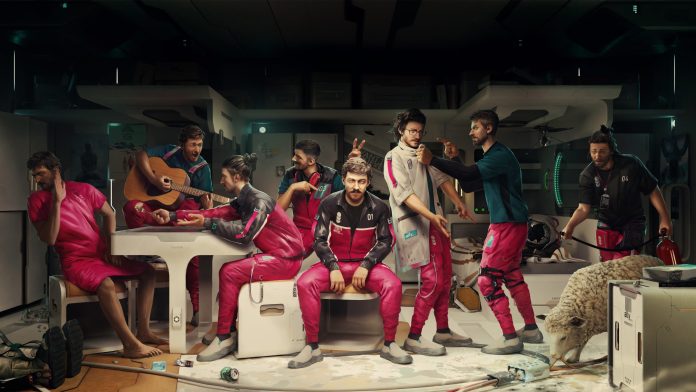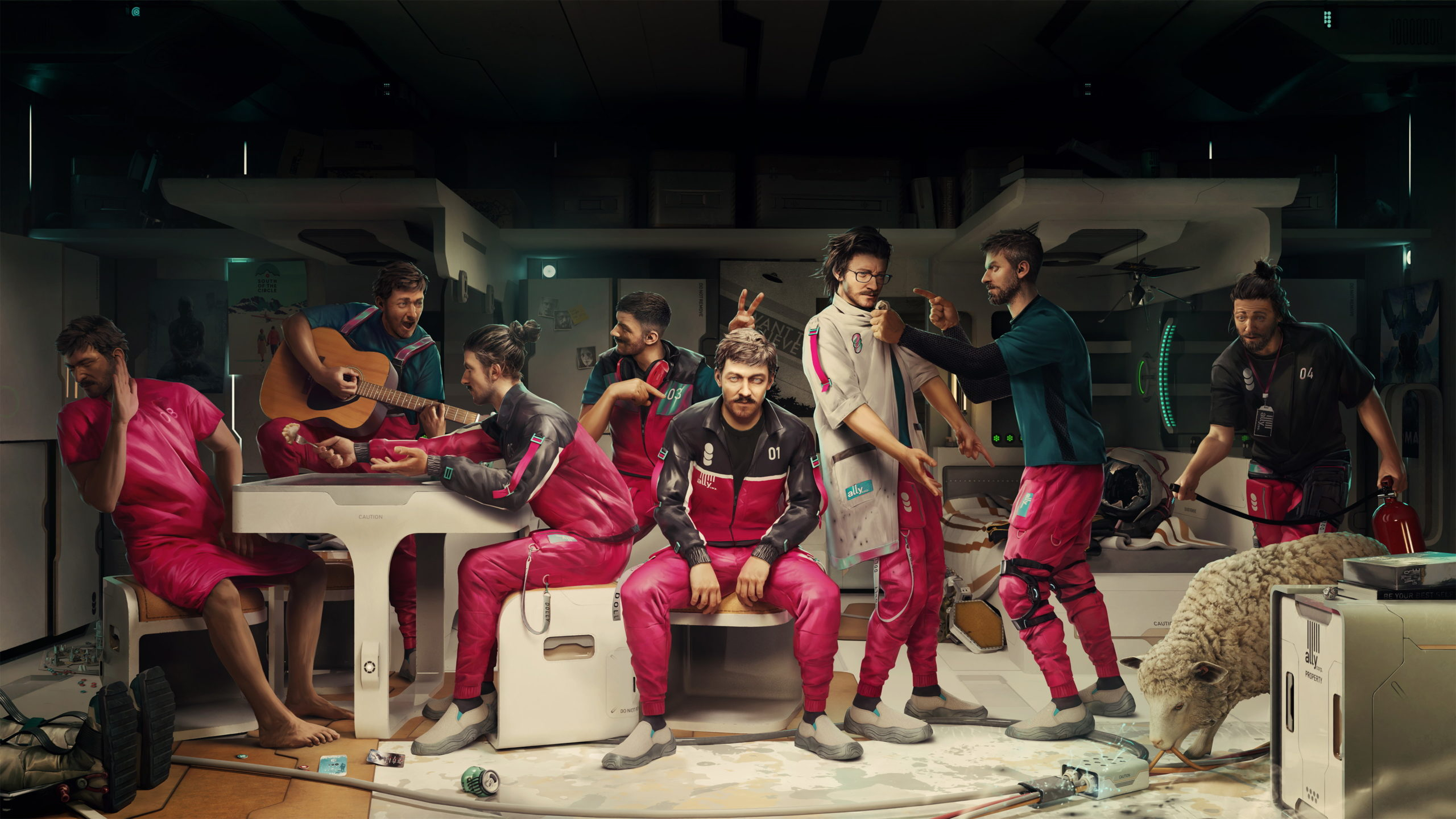
Since time immemorial, man has been – understandably – obsessed with personal identity. Across thousands of years, philosophy’s deepest thinkers have grappled with this concept in attempting to deconstruct the human self. More recently, the likes of David Hume, Friedrich Nietzsche, and Jean-Paul Sartre all sought to explain who “we” are, musing on the cast of different personalities that might be presented on any given day. And yet, as fans of the unassuming Warsaw-based studio 11 Bit are currently discovering, arguably the most accessible, 21st-century exploration of this labyrinthine strata of the mind may have emerged last month in a video game.
The Alters has won acclaim for its depiction of the cosmic travails of Jan Dolski, a nondescript builder who finds himself abandoned on an unnamed and fearsomely inhospitable distant planet. Initially, he is alone. But everything changes with the creation of a sheep – the animal whose 1996 real-world cloning acts as the inspiration for the Project Dolly mission and central narrative – via the amalgamation of a prized native element, Rapidium, and some agreeably implausible onboard tech. The result? A collection of Jans, who all have similar but branching life experiences, alongside characters and skills, quirks, and flaws, that are like him but somehow different.
All 11 Alters are played by Alex Jordan, a voice actor who has earned widespread acclaim for his work in almost 100 titles, most notably as the fixer Mr. Hands in the Cyberpunk 2077: Phantom Liberty expansion.
But this role stands alone as a “heroically voiced performance” and one that, mapped against the reams of modern history’s existential contemplation, certainly chimes with the research of Swiss psychologist Carl Jung. “Personality is the supreme realization of the innate idiosyncrasy of a living being. It is an act of high courage flung in the face of life,” suggested Jung, whose exploration into the notion of archetypes has adopted a contemporary zeal in marketing.
Dawn of the replicants
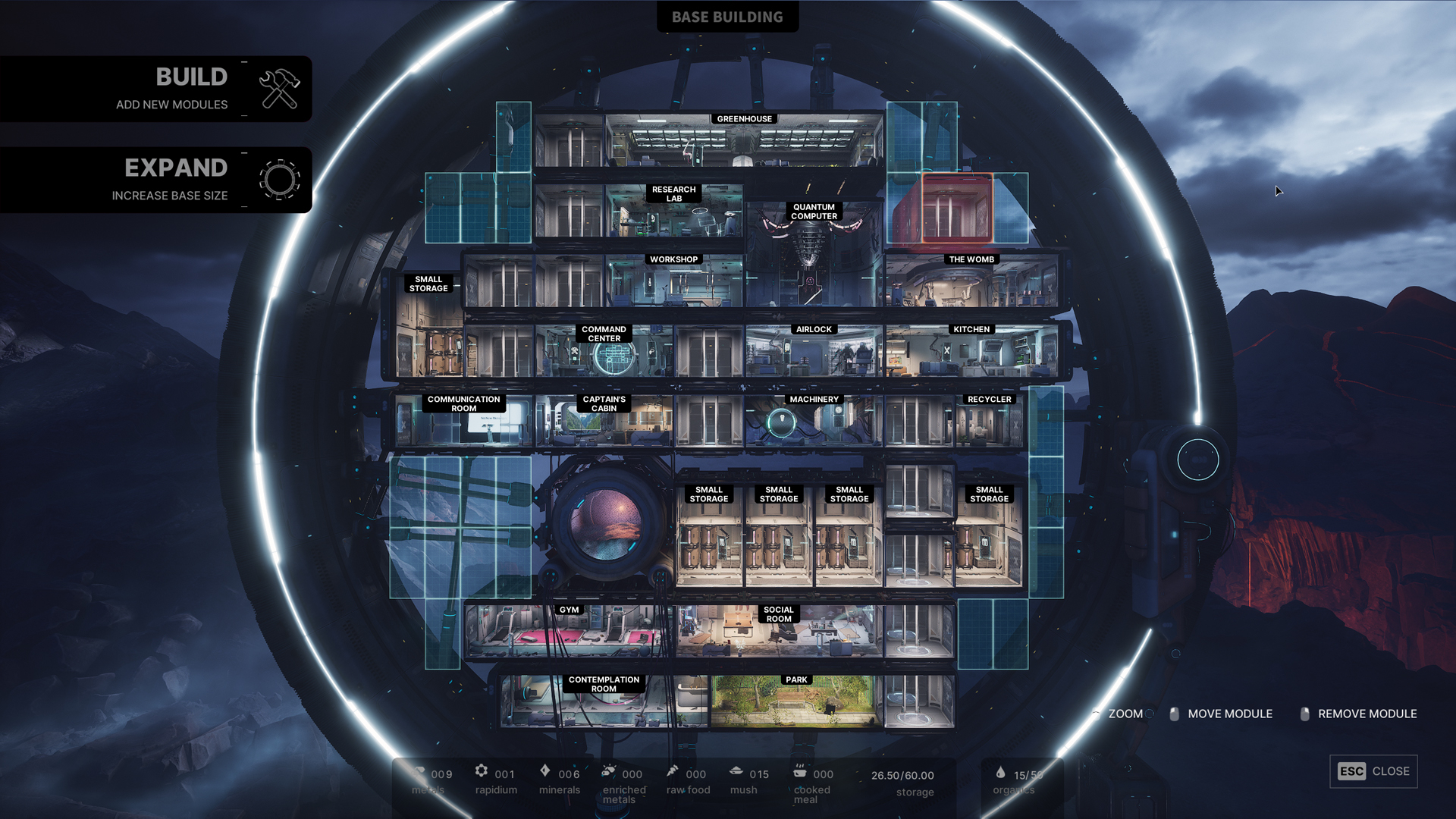
What does all this mean for The Alters? From the Jungian model of the Explorer, Ruler, Creator, Magician, and Hero, players encounter the Technician, Miner, Scientist, Botanist, and Refiner. Jordan tells us he spent more than 400 hours recording the material that emerges from these multiple versions of Dolski. But the real-world reality sounds even more all-consuming. “These characters have lived in my brain,” he explains. “They were always there and always in my head.”
Given that Jordan took on the part two and a half years ago, he has been in the company of these alternative incarnations for many months. In building out each figure, how did he manage the nuance – beyond a central US accent – that defines their individuality? “We have a limited amount of time with the player and a situation in the game where the sun is on our back. Very quickly, you need to understand who this person is, what makes them tick, what kind of personality they have. Their voice is going to be a shortcut to that, allowing you to get to know their character more deeply,” he says.
“You immediately get a sense of personality from the accents. It’s a stylistic choice. An analogy I’ve used is we have a building, which is all of the characters. We start at the basement with OG Jan and move further and further away from what he sounds like. But if we go too far away, we build up too many stories. The building isn’t viable, and it could fall apart.”
Altered states
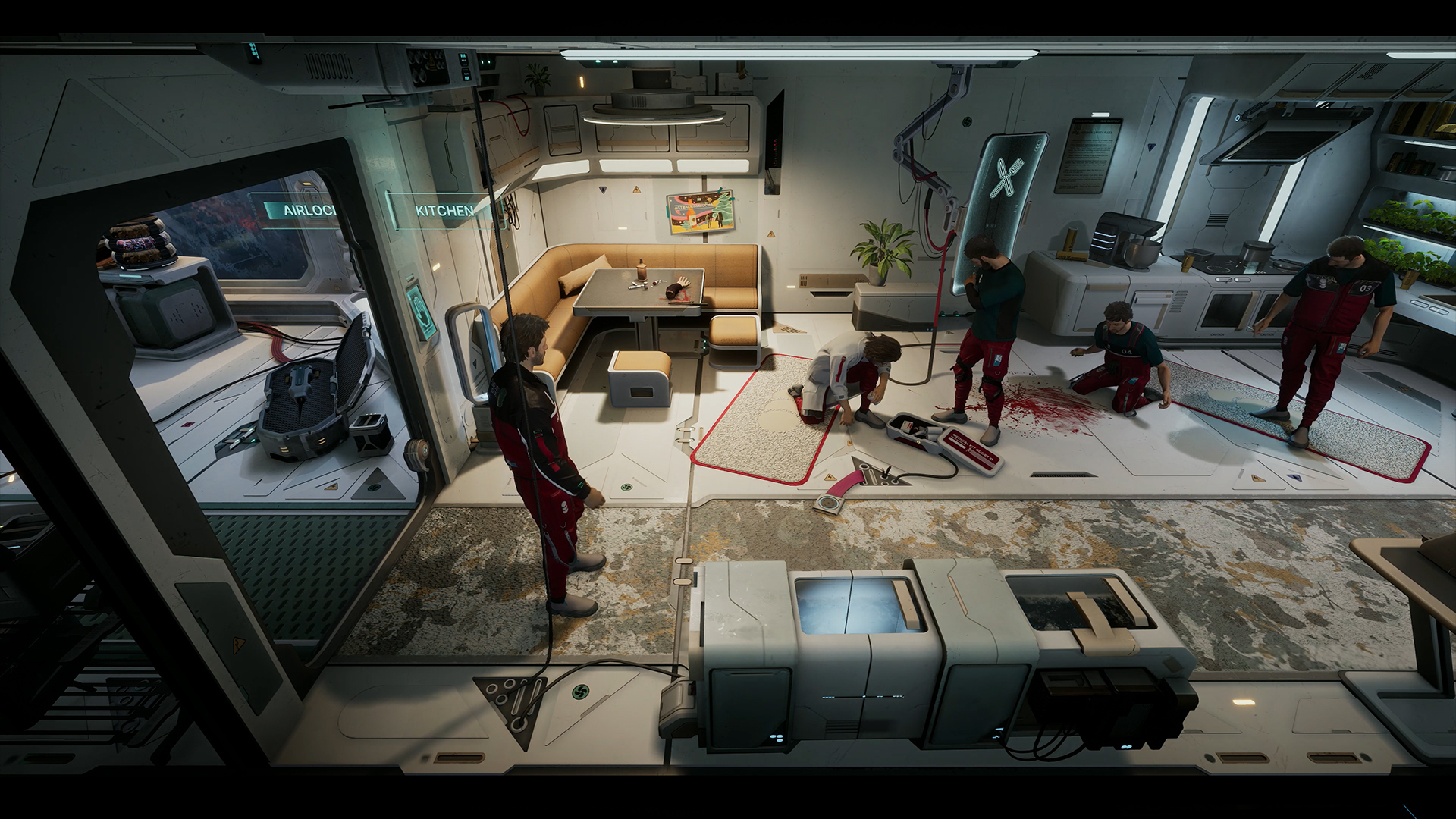
Jordan praises 11 Bit writers Magda Gamrot and Katarzyna Tybinka for their composition of tangibly immersive and culturally relevant dialogue – all penned in a second language – representing both the geographic reach and individual variety of the Alters and highlights the “complex moral and philosophical dilemmas” presented to gamers. Nonchalantly recreating the voices over Zoom, he explains how it’s possible to mine the core DNA of each character to identify who they are and where they’re from on a North American map.
Ostensibly a sci-fi survival game merging strategy base-building and resource management with third-person exploration, The Alters might glibly be described as The Sims meets Alien, with bloody visceral elements recalling the psychological torture and body horror seen in the Dead Space series. Meanwhile, Dominik Diamond recently described it as “the realest game about parenting I’ve ever played”.
What’s the game actually about? “Self-love,” suggests Jordan, before running with Diamond’s analogy. “When you love a child, you want to encourage them to appreciate, accept, and love themselves, but also to reflect on things they did wrong and figure out if that lines up with who they are as a person. If it doesn’t, what would they do differently? Having that self-reflection is important.
“It’s also about grief and how it isn’t necessarily a bad thing. If you are grieving, it means you’ve had love. Grief can be a learning experience you come away from stronger. It’s something you never want to go through but inevitably have to. How do you handle it and how do you move on?” he questions, suggesting that working on The Alters was akin to being in therapy for two years.
Beer pong or insurrection?
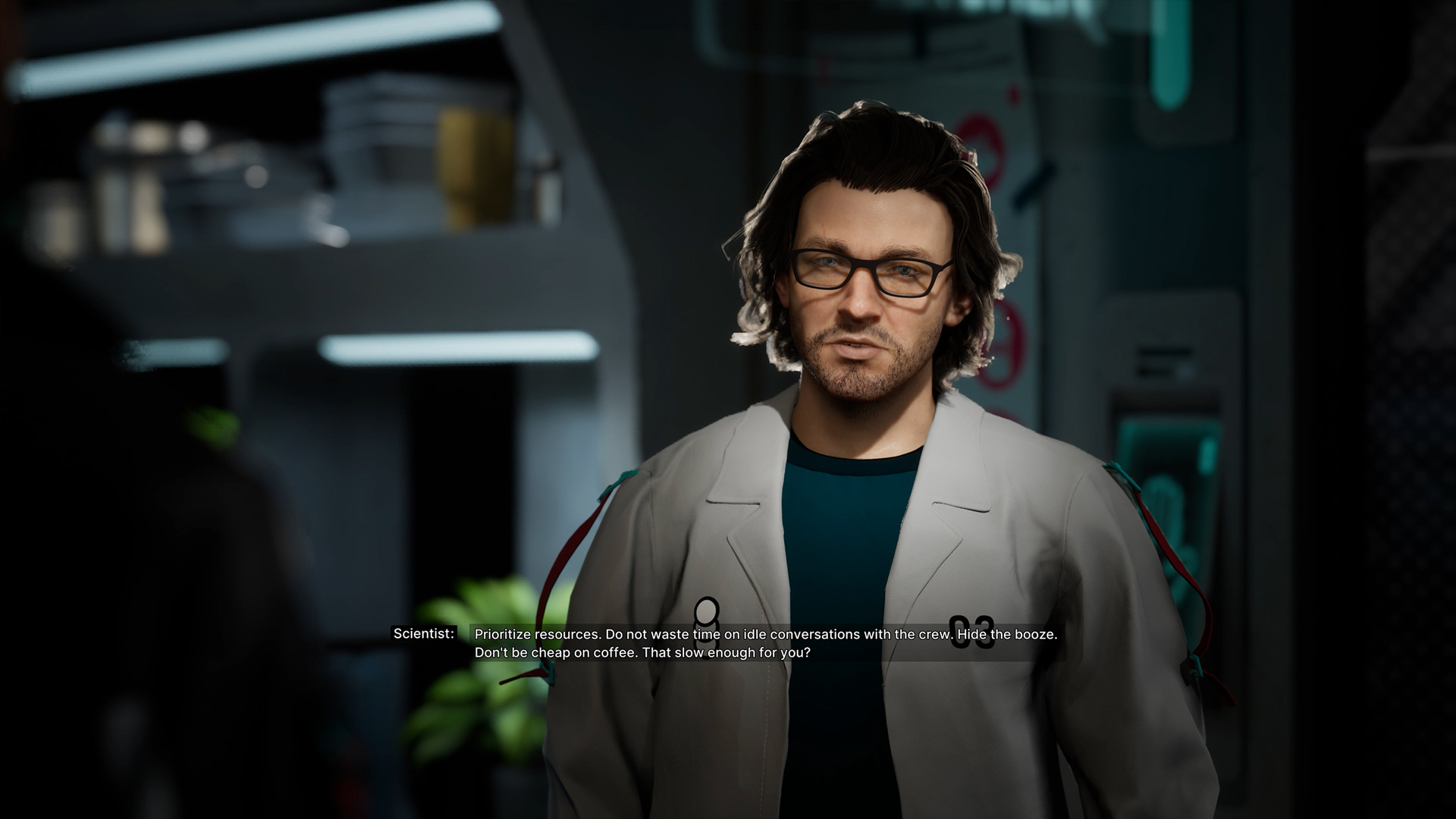
As anyone who has played the new game from the makers of This War of Mine and two Frostpunk titles will know, there are multiple conflicting choices available in Jan’s decision-making. As the head of the mission, his principal job is to keep the team alive as their cylindrical base rolls like a titanic tire across the malevolent landscape, where the triple threat of surrounding radiation, evolving lifeforms, and approaching sun becomes ever more claustrophobic.
There are constant pressures in a position of evident responsibility – do you play beer pong with Jan Technician, who is threatening to incite an insurrection if you don’t, or research if it’s possible to grow back a new limb belonging to another Alter that has, inconceivably, severed the original? – and corresponding conversations that act as a trigger.
Jordan says the experience left him “emotionally drained, shattered”, in a technical process he agrees felt mind-boggling at times, particularly in the delivery of so many layers of narration. Although the game has earned comparisons to movies such as Moon and Mickey 17, he suggests the creation of these characters – and the broader vision of director Tomasz Kisilewicz – was intentionally designed with no specific antecedents to retain a pioneering approach in the realization of one central figure. He does, however, cite Dee Bradley Baker’s vast range of roles in 2021’s animated TV series Star Wars: The Bad Batch.
But while this game is also set in space, there is considerably less of the Spaghetti Western swashbuckle associated with the enduring Disney franchise. Ever wanted to excavate a cliff against the backdrop of a nuclear sunset? How about forcing your character to the brink of collapse from exhaustion and/or radiation sickness as he makes barely edible mush for the crew at 4am? There’s a lot of grind and crunch in The Alters. It’s taxing physical and mental labor. But balanced against what its lead describes as “a stress simulator” are frequent flashes of humor that are both dark and pure in execution.
Alt-rock
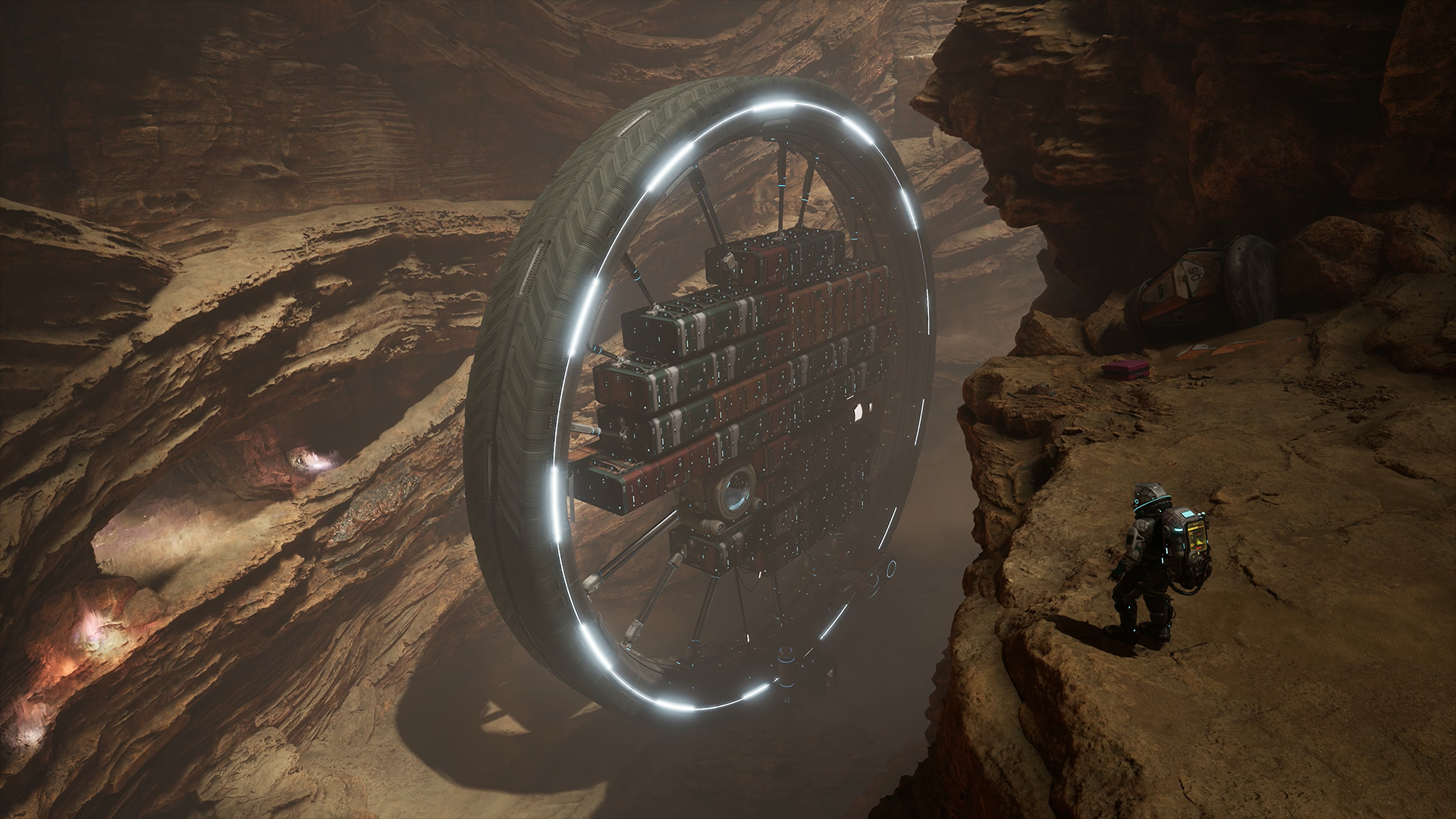
As a child, Jordan developed an interest and ability as an impressionist. However, while studying acting at London’s Rose Bruford college he realized this would not necessarily sustain his ambitions. “I learned very early on that if I was going to have a career acting in video games, cartoons, films and TV with any longevity, I would have to move away from that. It became a lot more about using those skills impersonating other people to come up with my own characters on the fly. That set up the foundations for this.
“AI is obviously on the horizon, and this is a perfect example of something AI can’t do: come up with a voice that sounds like someone if their life experience had been in a laboratory or down a mine. That’s a deeply human thing. Every single experience I had leading up to The Alters and that human element is what made me capable of doing this job,” says Jordan, who is keen to emphasize the organic teamwork and creative principles that power both this game and the wider 11 Bit Studios team, following recent controversy surrounding AI and its latest title.
With the game released, Jordan reveals he has found himself hankering after more time with his imaginary buddies, finding sustenance in the Piotr Musiał soundtrack. Alongside a collection of seething and unsettling Hans Zimmer-style sonic solar blasts, it features What If (The Alters Song), an anthemic soft-rock ballad performed by Jordan in the guise of four Alters in an unlikely but amusing and pointedly emotive cut scene. “It genuinely doesn’t feel like I’m listening to my own voice. It’s like a group of mates I’ve not seen in a while. It’s a weird experience!”
The use of music provides another example of the pulsing heart and vivid soul powering this singular experience. While he may have been tasked with voicing the very down-to-earth dialogue that occurs in a resolutely alien environment, Jordan credits the director with connecting the interactive infrastructure to a profound and heavy vision of mankind. “Tomasz has said in the past his goal is not to make you a better player but a better person. It’s a unique approach. There is a place for games that seek to make you a better gamer. But it’s cool to have people who approach the medium as an art form, wanting to tell stories that change the player.”
You might also like…
- I got early access to Marvel Rivals Season 3, and I can’t wait for everyone to try out Spider-Man’s new Burn-Tracer Team Up attack
- Death Stranding 2: On the Beach sold me on the PS5 Pro, but I’m still not sure I’d recommend the premium console to everyone just yet
- Donkey Kong Bananza offers a no-holds-barred open world that encourages you to go bananas
